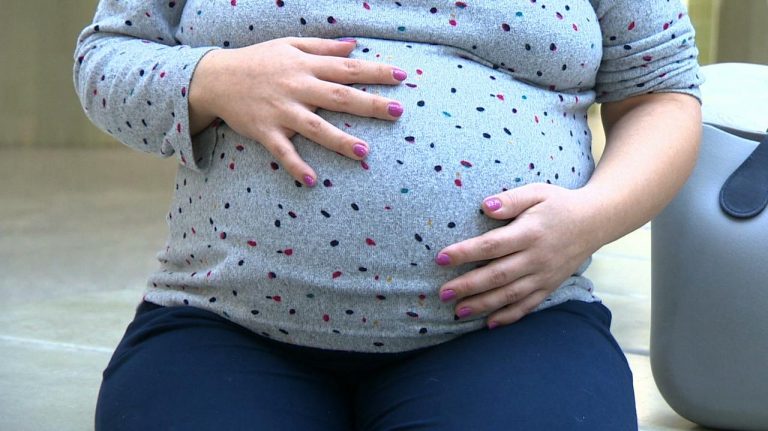This is not a problem for all birthing women and in all delivery rooms. However, there seemed to be time to learn that lesson. Unfortunately, the pain and lack of compassion is still felt by too many women. The Ombudsman intervenes in this matter in the Ministry of Health.
– I am a mother who experienced many violations during childbirth, – admits Mrs. Anna Osmenda-Salom. – Mothers are kind of left alone, – adds Mrs. Alexandra Vachal.
A support group for many was created out of difficult experiences. With the initiative of Ms. Anna, women in Volbrom can tell what their birth was like. – I don't remember the mother I met here who didn't see at least one violation during childbirth, – says Mrs. Anna.
SEE ALSO: She was diagnosed with cervical cancer during her pregnancy. Mrs. Maja underwent chemotherapy and gave birth to a healthy son
These are personal experiences and general knowledge. – What the patients indicated to us was that if they describe their birth, they have to describe it with words like: painful, traumatic or tragic, – notes Bartlomiej Lukasz Chmielovic, Ombudsman for Patients' Rights .
The term “pregnancy registration” appeared during the PiS government. Although the government has changed, concerns remain Adrianna Otreba/Fakty TVN
Letter to the Ministry of Health
The ombudsman wrote to the Ministry of Health that perinatal care in Poland needs to be improved and cites data – every fifth woman feels humiliated during childbirth. Why? The reasons are surprising. This means blackmailing the child's health, forcing the legs apart or tying them to the bed, threatening, pushing or hitting them.
– The ombudsman decided to send a comprehensive speech that presents the image of pregnancy and childbirth in the best possible way, – says Piotr Mierzejewski from the ombudsman's office.
ALSO READ: “My dogs do it too.” Horrible births and the intervention of the Patient Ombudsman
Not all labor is bad, but when it is, it can be bad for many reasons. – Lack of access to anesthesia, lack of support in breastfeeding, lack of protection of the perineum, lack of consent for medical procedures – says Mrs. Anna Osmenda-Salom.
Ms. Isabela spoke of a traumatic birth. “I have postpartum depression and post-traumatic stress disorder” Katarzyna Gorniak/TVN Facts
Standards of perinatal care are changing
The list of cons is long, but there are also positives. – The positive news is that we regularly analyze this data, changes are coming, – says Joanna Pietrusiewicz from the Roździ po Ludzku Foundation. They can be seen, for example, in the percentage of epidural anesthesia. Year after year, they were scandalously low, and when the Ministry of Health changed the way they were financed, something changed in the number.
Percentage of natural births with epidural anesthesia NFZ
However, there is a lot of work ahead. The ideas are there. – Intensive training of midwives is going on, then anesthesiologists can, as is standard, give them some of their powers during childbirth, – informs prof. Ewa Wender-Ojegowska, national consultant in obstetrics and gynecology.
And the standards of perinatal care will soon – as the Ministry of Health says – change in favor of women. – They will have breastfeeding care, they will have better obstetric care, better access to perinatal anesthesia solutions and a number of other ways that will make women less afraid of childbirth – assures Yakub Golab from the Ministry of Health.
It's important to know your rights before birth so you don't have to go after them after birth. Mrs. Anna proved before the Patient Ombudsman that her rights were violated during the birth of the child. – I gained strength to fight for my rights, – Mrs. Anna emphasizes. The point is that there is no need to fight anymore.
Main photo source: TVN24

